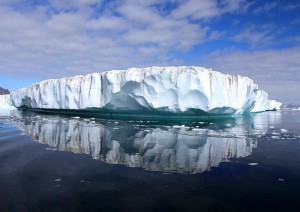MONDAY, 25 JUNE 2012
Arctic climate records are usually confined to the past 20,000 years or so. However, drilling at Lake El’gygytgyn in north-east Russia has recovered a sediment core which provides a continuous record stretching back 2.8 million years into Arctic history. The core provides an unparalleled record of the history of Arctic climate.Warming and cooling of the climate is a well-established feature of meteorological history, and ice sheets retreat and advance in line with a cycle of warm interglacial and cold glacial periods. The new core reveals a series of ‘super-interglacials’ – periods where the Arctic summer was up to 5°C warmer than today.
Climate models failed to explain these super-interglacials, until changes in the Antarctic ice sheet were factored in. The West Antarctic Ice Sheet advances and retreats just like ice sheets in the Northern hemisphere, and occasionally suffers catastrophic collapses. The new models suggest that these collapses in Antarctic ice volume could be linked to intense Arctic warming too.
This finding raises an important question: Could a super-interglacial be developing in the Arctic? The West Antarctic Ice Sheet is retreating rapidly as our climate warms, and this study suggests that an ice sheet collapse in the Antarctic could have far more wide-ranging consequences than previously thought.
DOI:10.1126/science.1222135
Written by Amelia Penny

